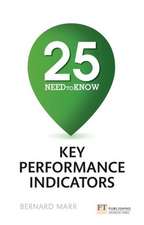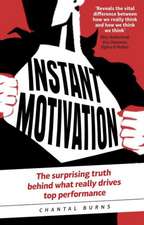The Work/Life Dichotomy: Prospects for Reintegrating People and Jobs
Autor Martin Morfen Limba Engleză Hardback – 31 iul 1989
A new book, "The Work/Life Dichotomy," explores the redesign of mundane jobs; studies the trends in work/life relationships; and examines the link between training and the supply and demand of skilled and unskilled labor. Because business has shifted to a human development orientation, the book is of great value to HR professionals. . . . This book should be required reading for those concerned with the gap between work and life and reuniting the two for a healthier society, one in which human growth and development are as important as corporate productivity gains. "HR Magazine"
In his provocative new book, Morf argues that the severe productivity problems being experienced in Western economies--particularly in the United States--result from an entrenched perceived dichotomy between work and life in our society. Further, he asserts, social problems such as lack of competitiveness in world markets and low worker morale and individual concerns like low job satisfaction can only be attacked effectively when seen for what they are: manifestations of this deep gap between work life and home life which began to develop during the industrial revolution. Morf's sober, well-researched, yet eminently readable book synthesizes information from a variety of disciplines ranging from history to industrial psychology to offer a groundbreaking presentation of the complex relationship between society, culture, and the work sphere.
Morf looks closely at current efforts to increase productivity as they are practiced within organizations, demonstrating that most are doomed to failure because they neglect to address the basic problem. He presents an interactive systems view of the relationship between work and life and between job and worker, a perspective familiar to the Japanese, but largely ignored in the United States. This interactive systems view leads Morf to a consideration of the positive effects of well-designed work on the personality and long-term productivity of the worker, an approach which must be taken, he argues, if the United States is to regain its standing in world markets. Finally, Morf offers a systematic set of strategies for reintegrating people and jobs, ranging from importing selected ideas and practices on worker participation from abroad, to traditional methods of organizational development and job design. An important contribution to the human resources literature, this book brings a new voice to the debate over America's increasingly troublesome productivity levels.
Preț: 436.99 lei
Preț vechi: 707.30 lei
-38% Nou
83.62€ • 87.52$ • 69.60£
Carte tipărită la comandă
Livrare economică 31 martie-14 aprilie
Specificații
ISBN-10: 0899304214
Pagini: 211
Dimensiuni: 156 x 234 x 13 mm
Greutate: 0.48 kg
Editura: Quorum Books
Descriere
In his provocative new book, Morf argues that the severe productivity problems being experienced in Western economies--particularly in the United States--result from an entrenched perceived dichotomy between work and life in our society. Further, he asserts, social problems such as lack of competitiveness in world markets and low worker morale and individual concerns like low job satisfaction can only be attacked effectively when seen for what they are: manifestations of this deep gap between work life and home life which began to develop during the industrial revolution. Morf's sober, well-researched, yet eminently readable book synthesizes information from a variety of disciplines ranging from history to industrial psychology to offer a groundbreaking presentation of the complex relationship between society, culture, and the work sphere.
Morf looks closely at current efforts to increase productivity as they are practiced within organizations, demonstrating that most are doomed to failure because they neglect to address the basic problem. He presents an interactive systems view of the relationship between work and life and between job and worker, a perspective familiar to the Japanese, but largely ignored in the United States. This interactive systems view leads Morf to a consideration of the positive effects of well-designed work on the personality and long-term productivity of the worker, an approach which must be taken, he argues, if the United States is to regain its standing in world markets. Finally, Morf offers a systematic set of strategies for reintegrating people and jobs, ranging from importing selected ideas and practices on worker participation from abroad, to traditional methods of organizational development and job design. An important contribution to the human resources literature, this book brings a new voice to the debate over America's increasingly troublesome productivity levels.









